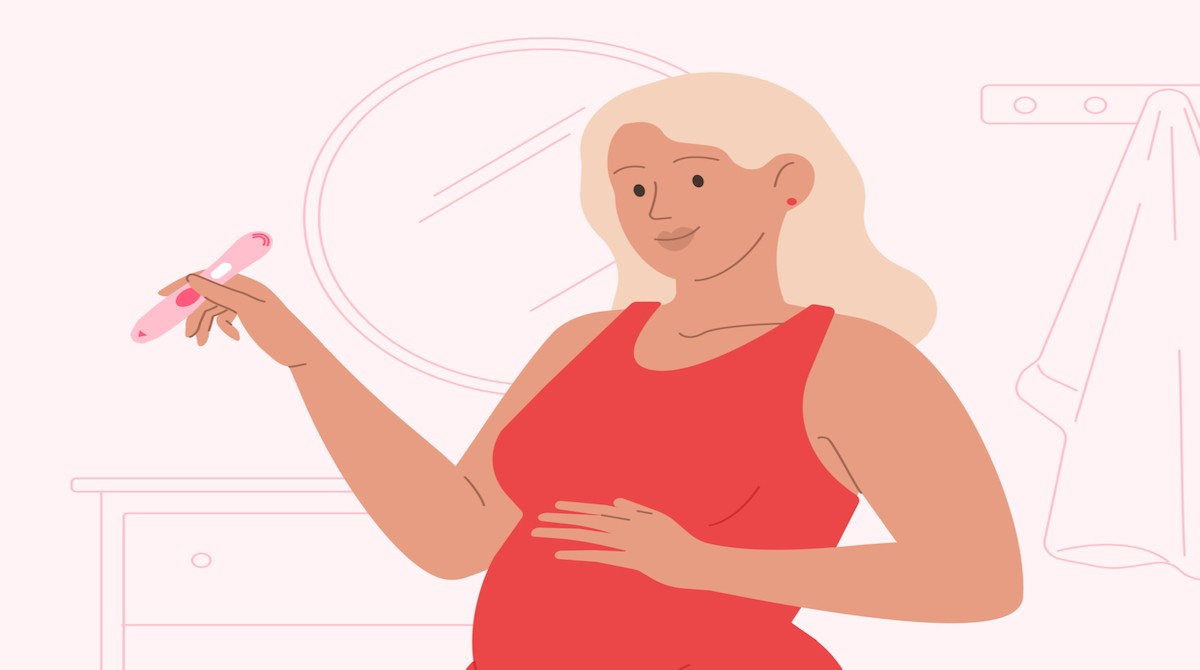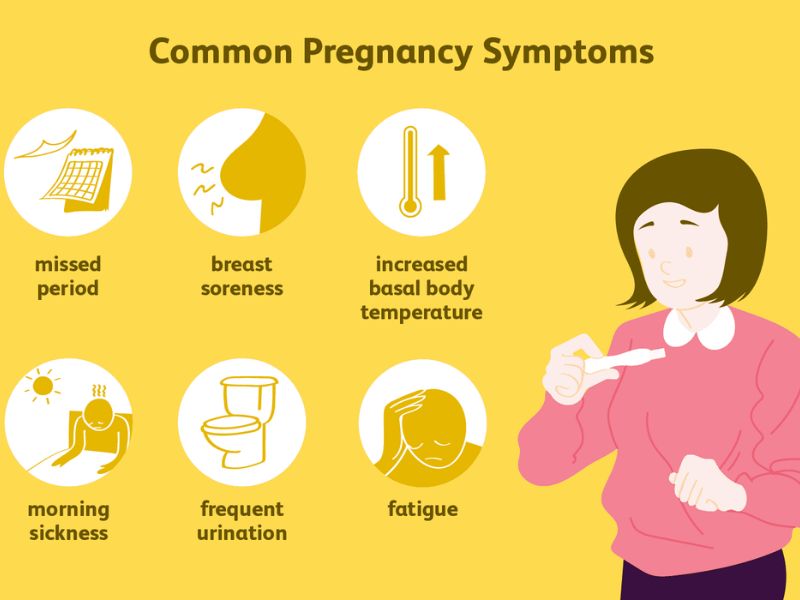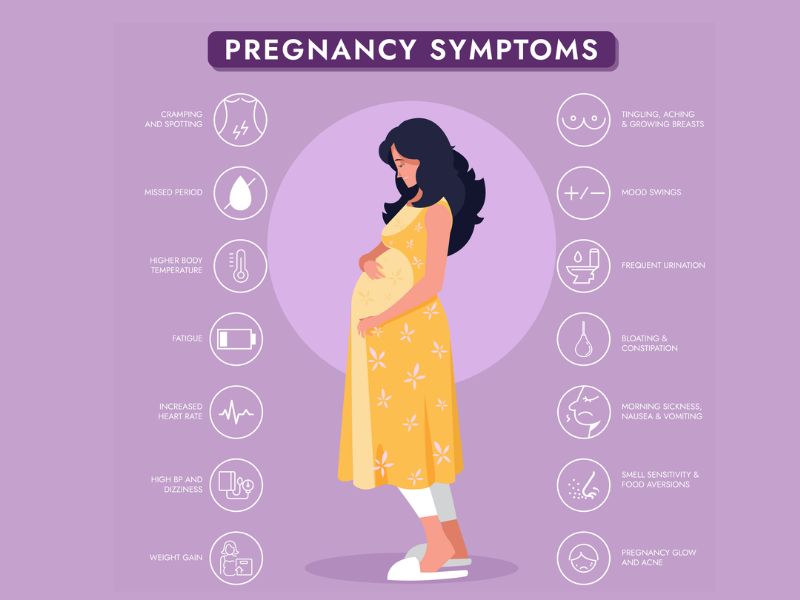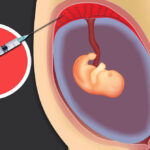
Signs and symptoms of pregnancy in the first trimester
What is the signs and symptoms of pregnancy in the first trimester? The first trimester, also known as the first menstrual period, is one of the important events that mark the transition of a woman’s body from adolescence to adulthood. This is an important stage not only physiologically but also psychologically and socially. In this article, we will delve into the importance of the first trimester and the common changes during this period.
The importance of the first trimester
The first trimester marks an important turning point in a girl’s development into womanhood. Here are some important points about the importance of the first trimester:
- Indicator of reproductive health: The first trimester is a sign that a girl’s reproductive system is active and prepared for future pregnancy and reproduction.

- Preparing for adulthood: The arrival of the first trimester marks the transition from adolescence to adulthood. This can bring about a new sense of self and promote psychological and social development.
- Privileges and responsibilities: The first trimester can bring a sense of confidence and independence, but it also places responsibility for managing your reproductive health and taking care of yourself.
Common changes during the period
During the first trimester, women often experience notable physiological and psychological changes, including:
- Start of the menstrual cycle: The first trimester is often accompanied by the onset of menstruation, a natural monthly cycle that sums up preparation for pregnancy and reproduction.
- Hormonal changes: Hormonal changes in the body can cause psychological changes such as depression, emotional instability, or stress.

- Body changes: This stage is also often accompanied by body changes such as breast development, changes in weight and shape, as well as the growth of eyebrows, nose hair and hair. foot.
In short, the first trimester is not only an important turning point in women’s physiological development but also an important period marking the transition from adolescence to adulthood.
Signs and symptoms of pregnancy in the first trimester
Signs and symptoms of pregnancy can appear from the first weeks after pregnancy begins and often become more obvious when the fetus has developed enough to affect the mother’s body. Here are some common signs and symptoms of pregnancy:
- Nausea and vomiting (morning sickness): This is one of the common signs of pregnancy, especially in the morning. Nausea and vomiting are often called “morning sickness” and are often positive signs of pregnancy, but can also cause discomfort for the mother.
- Breast changes: Changes in the breasts often include increased size, fullness, and sensitivity. This happens due to changes in pregnancy hormones in the body.
- Frequent urination: Pressure from the growing uterus and growing muscles can increase pressure on the bladder, causing the urge to urinate more often.
- Fatigue: Fatigue is a common symptom during pregnancy. The body is working hard to nourish and develop the baby, so fatigue can be a natural reaction.
During pregnancy, there are various signs and symptoms that a pregnant person may experience. These include cramps, mood changes, weight gain, and swelling, which can cause an increase in the size of the body. However, the severity of these symptoms may vary from person to person. It is important to consult a doctor if any strange or worrying signs or symptoms appear, to ensure the health of both the mother and baby.

Other positive signs:
In addition to the signs and symptoms of fatigue and morning sickness, there are several other positive signs that pregnant women may experience:
- Slight weight gain: Slight weight gain is normal during pregnancy and is often considered a positive sign of the baby’s development. However, weight gain needs to be monitored and controlled to ensure that it is steady and not excessive.
- Blood test and ultrasound results: Blood tests and ultrasound results are often used to evaluate the baby’s development and health. Normal and healthy results from these tests are a positive sign that the fetus is growing strongly.
- Hearing the fetal heartbeat: When the fetus develops to a certain stage, its heartbeat can be heard using a sound therapy instrument such as an ultrasound machine. A stable heart rate shows that the baby is developing normally.
Tips to reduce unpleasant symptoms
- Eat many small meals: Instead of eating three large meals a day, divide your portion into smaller meals to reduce feelings of bloating and morning sickness. At the same time, avoid being hungry completely to reduce the risk of nausea.
- Drink enough water: Keeping your body hydrated is very important during pregnancy. Drinking enough water helps reduce nausea and fatigue. If you feel uncomfortable with water, you can try adding a soothing flavor like lemonade or coconut water.
- Rest properly: Take time to rest properly and don’t overwork. Practicing relaxation techniques such as meditation and yoga can also help reduce stress and fatigue.
Foods to eat and avoid during the first trimester
Should eat:
- Nutrient-rich foods like green vegetables, fresh fruits, nuts and legumes.
- Protein-rich foods such as chicken, fish, soybeans and sunflower seeds.
- Foods rich in antioxidants like nuts and berries.
Avoid:
- Foods containing caffeine such as coffee, tea, and carbonated soft drinks.
- Food contains unsafe preservatives and chemicals.
- Food is not prepared properly or not cooked thoroughly.
Safe exercise for pregnant women
- Yoga for pregnant women: Yoga can help improve health and increase flexibility, while also helping reduce stress and anxiety. Choose gentle thinking and avoid movements that can be dangerous for the fetus.
- Walking: Walking is a gentle and safe exercise activity for pregnant women. Choose a flat, safe place to walk, and make sure to wear comfortable and supportive shoes.
- Swimming: Swimming is a very good exercise activity for pregnant women because it helps reduce pressure on the muscles and joints, while also providing gentle exercise and helping to keep the body cool. Make sure to choose a swimming pool with clean and hygienic water.
Signs and symptoms of pregnancy in the first trimester can provide reassurance but are not complete guarantees. Monitoring your body and visiting your doctor regularly is the best way to ensure the health of mother and baby throughout pregnancy.













